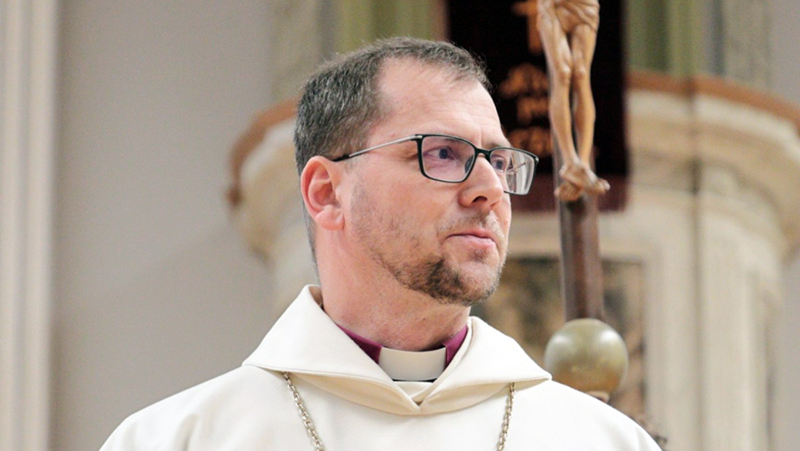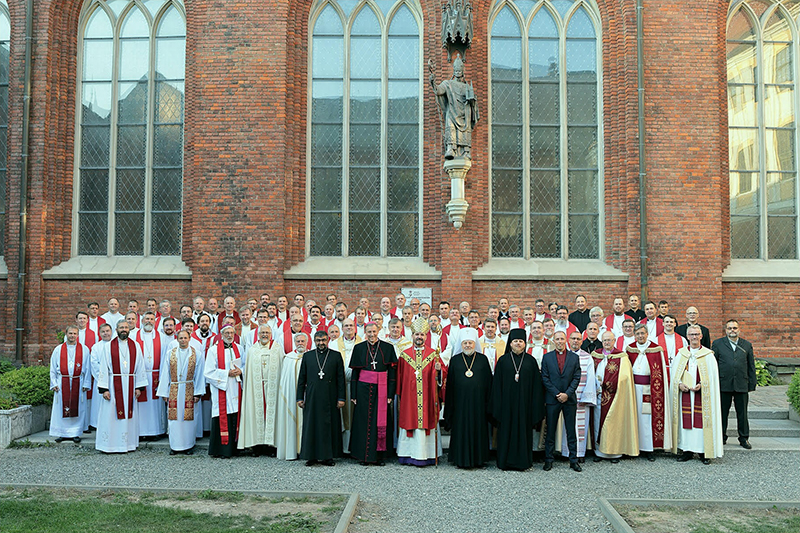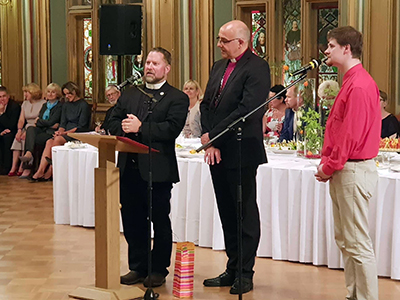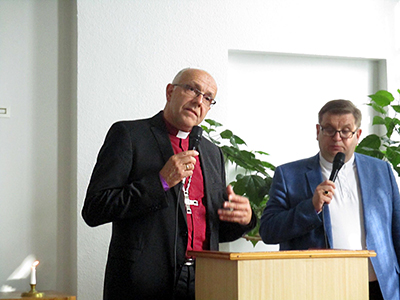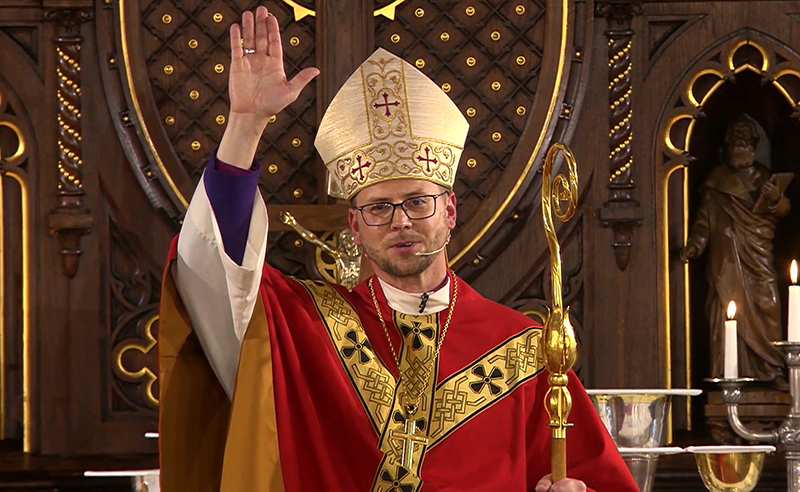
LATVIA – On August 30, 2025, the Evangelical Lutheran Church of Latvia (Latvijas Evaņģēliski luteriskā baznīca – LELB) installed Archbishop Rinalds Grants into office. Archbishop Grants was elected as the church’s new Archbishop on June 7.
“The Lord has entrusted the Church with nothing less than His mission and ministry,” Archbishop Grants’ said in his inaugural sermon, focused on Luke 5:1-11. “It would be more accurate to say that He has called us, His Church, to His mission, in which He is with us and is the main implementer.”
“If Peter reveals in our story how the Lord’s mission and ministry transform our lives, then Jesus helps us see what the ministry and mission to which His Church is called is,” he continued. “It comes from the heart of Christ, which is not indifferent to the need of people to hear the Word of God…. We are entrusted with carrying and serving with the Word of God, which creates change, frees peoples’ consciences, awakens hope, and creates a new path.”
“Our Gospel story ends with the statement, ‘Having brought their boats to land, they left everything and followed Him,’” Archbishop Grants concluded. “The great catch is left behind, as Peter and his companions follow Jesus along the path He has shown them. The word ‘way’ is also in my episcopal ministry motto… ‘I will show you a more excellent way’ (1 Corinthians 12:31).”
With these words, Paul “is not pointing to himself,” the Archbishop continued, “but to Christ, who alone walked it to the end—walking over Mount Calvary and through the empty tomb.”
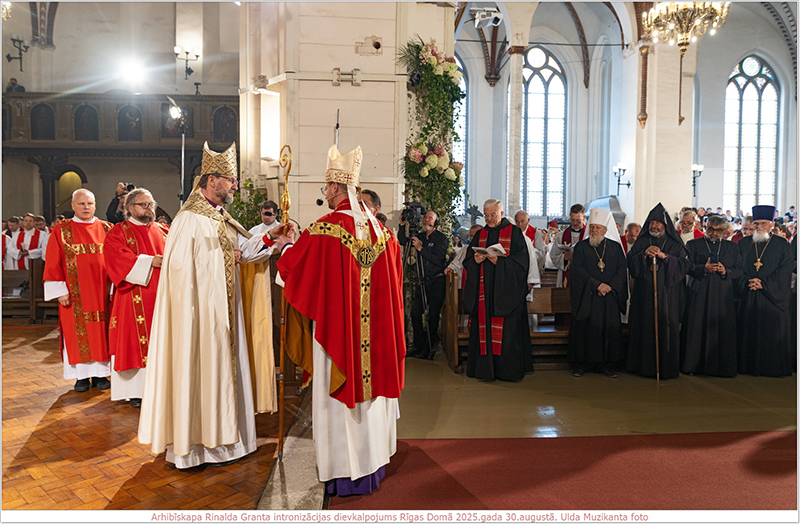
Archbishop Grants succeeds Archbishop Jānis Vanags, who laid down his crozier in a service in advance of the installation of Archbishop Grants. Archbishop Vanags installed Archbishop Grants into office, at which time he was presented with the crozier previously held by Archbishop Vanags.
The Evangelical Lutheran Church of Latvia is a member church of the International Lutheran Council (ILC), a global association of confessional Lutheran church bodies which proclaim the Gospel of Jesus Christ on the basis of an unconditional commitment to Holy Scripture and to the Lutheran Confessions. Representatives from a number of ILC member churches attended the installation of Archbishop Grants, including Bishop Juhana Pohjola of the Evangelical Lutheran Mission Diocese of Finland, who—as ILC Chairman—formally represented the International Lutheran Council at the event.
Since his installation, LELB Archbishop Grants has also been elected to serve as the Europe Regional Representative on the International Lutheran Council’s Board of Directors. The election came during the ILC’s 2025 World Conference in the Philippines.
———————

